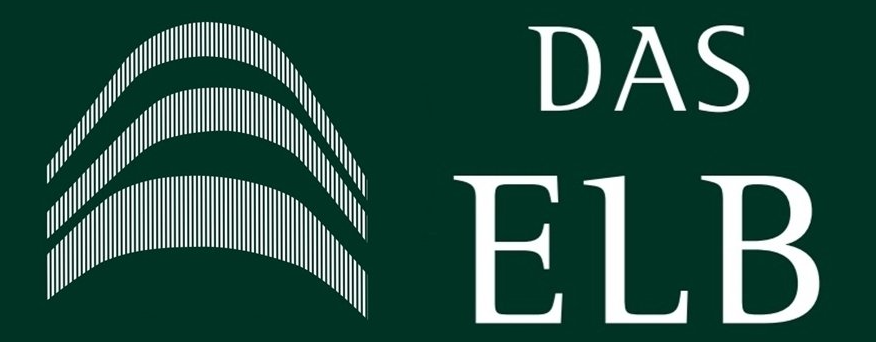info@das-elb-hotel.de
Singh_Laly
Unity Day in Germany: A Celebration of Reunification
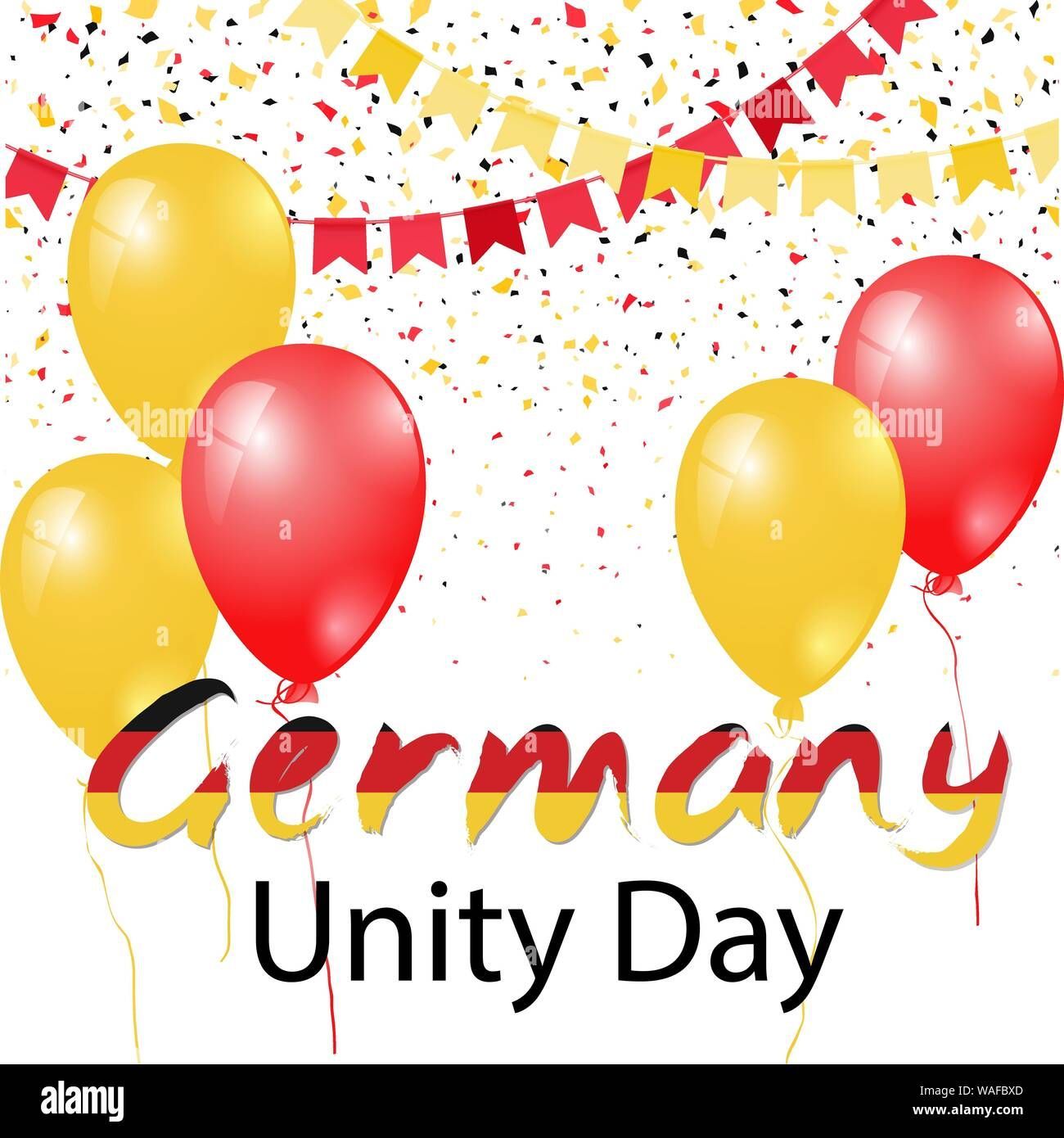
Introduction
Unity Day, also known as "Tag der Deutschen Einheit" in German, is a significant national holiday in Germany celebrated on October 3rd each year. This day marks the anniversary of German reunification in 1990, when the Federal Republic of Germany (West Germany) and the German Democratic Republic (East Germany) officially became one nation after decades of division. The history of Unity Day in Germany is a tale of reconciliation, determination, and hope for a brighter future.
The Division of Germany
The division of Germany began in the aftermath of World War II. Following the defeat of Nazi Germany in 1945, the country was divided into four occupation zones controlled by the Allied forces: the United States, the United Kingdom, France, and the Soviet Union. Berlin, the capital, was similarly divided. This marked the beginning of the separation between East and West Germany.
The Cold War intensified the division. In 1949, two separate German states emerged: the Federal Republic of Germany (West Germany) and the German Democratic Republic (East Germany). West Germany aligned itself with Western democracies and became a prosperous, democratic state, while East Germany fell under the influence of the Soviet Union and adopted a socialist, authoritarian system.
The Berlin Wall
One of the most iconic symbols of the division was the Berlin Wall, constructed in 1961 by East Germany to prevent citizens from fleeing to the West. The wall physically separated families, friends, and communities for nearly three decades, representing the deep ideological and political divide between East and West.
The Fall of the Wall and Reunification
The turning point came on November 9, 1989, when the East German government unexpectedly announced that citizens could cross into West Berlin freely. Thousands flocked to the wall, tearing it down with their bare hands. This event marked the end of the division and the beginning of a process that would lead to reunification.
On October 3, 1990, the reunification of Germany was officially declared. It was a joyous occasion, with celebrations taking place throughout the country. West Germany's democratic system and economic prosperity were extended to the East, bringing about significant changes and challenges in both regions.
Unity Day Celebrations
Unity Day is celebrated with a variety of events across Germany. The official ceremonies take place in the capital, Berlin, with the President of Germany, the Chancellor, and other dignitaries participating. Festivals, parades, concerts, and cultural events are organized in cities and towns nationwide. The German flag, featuring black, red, and gold, is proudly displayed, and people come together to reflect on the past and look to the future.
Conclusion
Unity Day in Germany is a powerful reminder of the human capacity for reconciliation and the desire for unity. It symbolizes the end of a painful division and the beginning of a new, unified Germany. It serves as a testament to the resilience and determination of the German people and is a celebration of democracy, freedom, and hope for a brighter future. Unity Day is not just a holiday; it's a symbol of the enduring spirit of unity and the possibilities that come with it.

1. *Scenic Beauty:* Hotels near lakesides offer breathtaking views, allowing guests to wake up to the serenity of the water and surrounding nature. 2. *Tranquil Atmosphere:* The peaceful ambiance of a lakeside setting provides a welcome escape from the hustle and bustle of city life, promoting relaxation and rejuvenation. 3. *Recreational Activities:* Guests can indulge in various water-based activities such as boating, fishing, or even lakeside walks, enhancing their overall experience. 4. *Outdoor Exploration:* Lakeside locations often provide opportunities for hiking, bird watching, and other outdoor activities, catering to nature enthusiasts and adventure seekers. 5. *Photographic Opportunities:* Stunning sunrise or sunset views over the lake create perfect moments for photography, making the stay memorable for guests. 6. *Unique Charm:* Lakeside hotels often boast unique architectural styles and design elements, adding to the overall charm and character of the accommodation. 7. *Dining with a View:* Many lakeside hotels feature restaurants with panoramic views, allowing guests to enjoy a meal while immersed in the natural beauty surrounding them. 8. *Wellness Benefits:* Proximity to water has been linked to improved mental well-being, making lakeside hotels ideal for those seeking a peaceful and therapeutic environment. 9. *Event Venues:* Lakeside hotels are popular choices for weddings and events due to their picturesque backdrop, creating unforgettable settings for special occasions. 10. *Seasonal Appeal:* Lakeside destinations can be attractive year-round, with different seasons offering distinct experiences, from summer water activities to cozy winter retreats.

As the holiday season approaches, the picturesque city of Magdeburg, located in the heart of Germany, transforms into a magical winter wonderland. With its charming Christmas markets, dazzling decorations, and a rich history, Magdeburg offers an enchanting experience for locals and visitors alike. Festive Markets One of the highlights of the Christmas season in Magdeburg is the enchanting Christmas market, located in the historic city center. This traditional market, known as “Magdeburger Weihnachtsmarkt,” is a true delight for all ages. Stroll through rows of wooden stalls adorned with twinkling lights, offering an array of crafts, gifts, and local treats. Advent Wreath Lighting The city’s Christmas festivities kick off with the annual Advent wreath lighting ceremony. Held in Magdeburg’s majestic Cathedral of Saint Maurice, this event sets the tone for the holiday season. The lighting of the Advent wreath symbolizes the beginning of the countdown to Christmas, creating a sense of unity and anticipation among the city’s residents. Historical Charm Magdeburg’s rich history comes to life during the holiday season. The medieval architecture and ancient city walls are beautifully illuminated, casting a warm glow over the city streets. Take a guided tour or simply wander through the historic center to appreciate the unique blend of history and holiday spirit. Ice Skating For those who enjoy winter sports, the ice rink at Magdeburg’s Elbauenpark is a must-visit. Skating enthusiasts can gracefully glide across the ice while surrounded by scenic views of the Elbe River. It’s the perfect opportunity to embrace the winter chill and get into the holiday spirit. Culinary Delights No Christmas celebration in Magdeburg is complete without savoring the local culinary specialties. Indulge in hearty German dishes, such as bratwurst, stollen, and spiced mulled wine known as “Glühwein.” Magdeburg’s restaurants and street vendors offer a diverse array of traditional holiday treats to satisfy your taste buds. A Time for Giving Christmas is a time for generosity and giving back to the community. Magdeburg’s residents actively participate in charitable activities and fundraisers during the holiday season, making it a time of compassion and goodwill. Conclusion With its charming Christmas markets, historical ambiance, and a strong sense of community, Magdeburg truly comes alive during the holiday season. The city’s Christmas celebrations offer a unique blend of tradition, history, and modern festivities, making it a perfect destination to create unforgettable memories during the most wonderful time of the year. Visit Magdeburg and experience the magic of Christmas in one of Germany’s hidden gems.
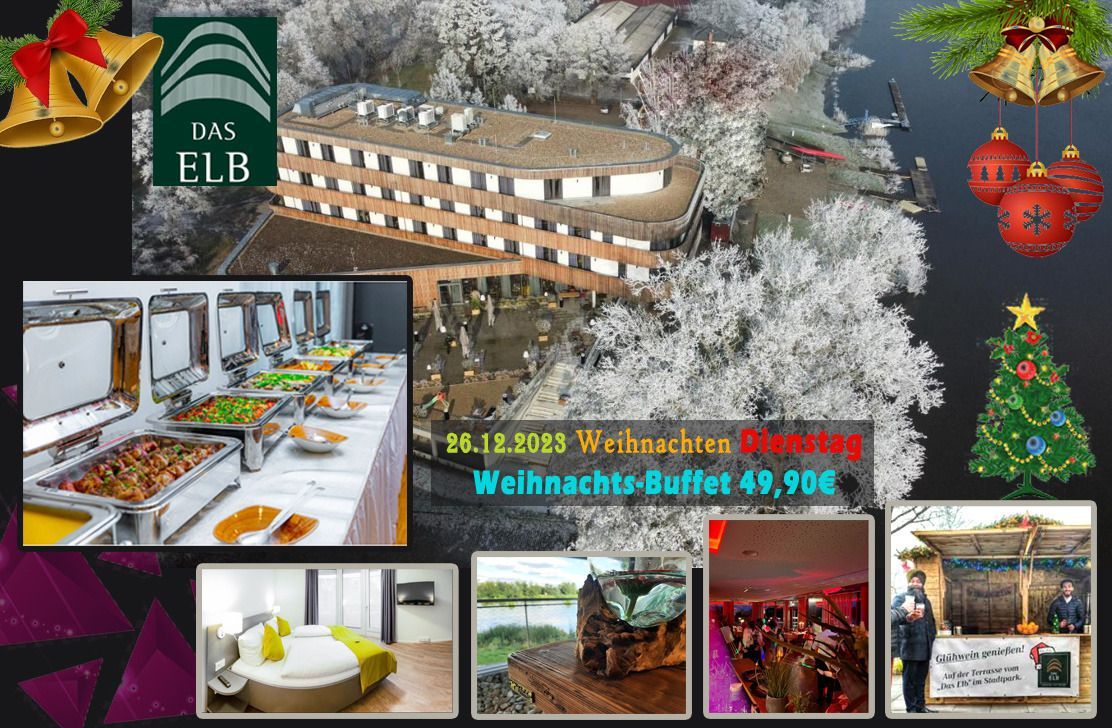
*Benefits of Nature Meetings:* Advantages of conducting office meetings in natural surroundings, such as increased creativity, reduced stress, and improved team bonding. *Activities and Team Building:* Nature-based team-building activities that can be incorporated into the meeting, such as hiking, wildlife tours, or outdoor brainstorming sessions. *Catering and Dining:* Best Food and Drinks. *Call to Action:* Um Reservierung wird gebeten: Das ELB 0391 / 563 266 0 info@das-elb.de https://v4.ibe.dirs21.de/channels/das-elb-hotelde/#start

*Introduction:* Nestled deep in the heart of a lush, wooded haven, DAS ELB promised a weekend of tranquility, where the only sounds were the rustling leaves and the gentle babble of a nearby stream. The decision to escape the city for this nature-centric hotel was one of the best I've ever made. *Hotel Description:* Das ELB Hotel is a charming eco-friendly boutique hotel situated in the midst of a Stadtpark. The moment I arrived, I was struck by the fresh scent of tree and the feeling of being completely enveloped by nature. *Activities and Experiences:* My days here were filled with hikes through the forest, guided by friendly staff who shared their knowledge of the local flora and fauna. I even had the chance to spot some elusive wildlife, like a deer that gracefully crossed our path. *Accommodation and Dining:* My cabin, aptly named the "Forest Retreat," was a cozy sanctuary with a spacious balcony overlooking a Elbe River. Waking up to the soft sunlight filtering through the trees was an experience I'll cherish. The hotel's restaurant served delicious farm-to-table meals with ingredients sourced from local farmers, adding to the overall nature-inspired experience. *Nature Exploration:* Beyond the hotel's boundaries, I ventured into the ELBE River, where pristine lakes, waterfalls, and ancient trees awaited. Exploring the natural wonders of this area was a true escape from the hustle and bustle of city life. *Tips for Future Travelers:* 1. Book your stay well in advance, especially during peak seasons. 2. Don't forget your hiking boots and binoculars for wildlife spotting. 3. Embrace the peaceful moments by simply sitting on your cabin's balcony and taking in the forest sounds. *Conclusion:* My weekend at Das ELB Hotel was an unforgettable nature-inspired escape. The opportunity to disconnect, breathe in the fresh forest air, and connect with nature was the perfect antidote to the stresses of daily life. If you're seeking a serene retreat in the heart of nature, this place is a must-visit.

1. Serene Environment: Hotels in nature offer a peaceful and tranquil atmosphere, allowing guests to escape the hustle and bustle of city life and relax in a serene environment. 2. Scenic Views: Nature hotels often provide breathtaking views of landscapes, such as mountains, forests, or oceans, which can be incredibly refreshing and inspiring. 3. Outdoor Activities: Guests can engage in a wide range of outdoor activities like hiking, bird-watching, or water sports, making it an ideal choice for nature enthusiasts. 4. Health Benefits: The fresh air and natural surroundings promote well-being and can have positive effects on physical and mental health. 5. Wildlife Encounters: Nature hotels may provide opportunities to see local wildlife, offering a unique and educational experience. 6. Eco-Friendly Practices: Many nature hotels prioritize sustainable and eco-friendly practices, making it an environmentally conscious choice for travelers. 7. Digital Detox : These locations often have limited connectivity, encouraging guests to disconnect from technology and reconnect with nature. 8. Relaxation and Stress Relief: The soothing sounds of nature and the absence of urban noise contribute to relaxation and stress relief. 9. Unique Accommodations: Some nature hotels offer unique lodging options like treehouses or cabins, enhancing the overall experience. 10. Inspiration and Creativity: The natural beauty can be inspiring, making it an ideal place for artists, writers, and creative individuals.

Halloween in Magdeburg is a bewitching experience that combines the rich history of the city with a contemporary twist on this spooky holiday. Whether you're a local or a visitor, you'll find a wide range of festivities and events to enjoy. Here's a look at what makes Halloween in Magdeburg truly special. 1. Haunted Tours Begin your Halloween adventure with a chilling haunted tour through the historic streets of Magdeburg. Expert guides recount eerie tales of the city's past, including legends of ghostly apparitions and unexplained phenomena. As night falls, the city takes on an eerie atmosphere that will send shivers down your spine. 2. Costume Parades One of the highlights of Halloween in Magdeburg is the annual costume parade. Locals and tourists alike don their most creative and spooky costumes and join the procession through the city center. Expect to see everything from classic monsters to imaginative and unique outfits. 3. Spooky Sweets No Halloween celebration is complete without indulging in some tasty treats. Magdeburg's bakeries and patisseries get into the spirit with special Halloween-themed pastries and desserts. Try a Dracula-inspired red velvet cupcake or a mummy-shaped cookie for a sweet and spooky delight. 4. Pumpkin Carving Contests Pumpkin carving is a time-honored Halloween tradition, and Magdeburg hosts exciting pumpkin carving contests. Join in or watch the experts craft intricate designs on these seasonal gourds. It's a fantastic way to get into the Halloween spirit and showcase your creative talents. 5. Costume Parties Halloween night in Magdeburg comes alive with costume parties held in various venues across the city. Whether you prefer an upscale nightclub or a cozy pub, you'll find a party that suits your style. Don't forget to join the costume contest for a chance to win prizes for your spooky ensemble. 6. Haunted Houses For the bravest souls, Magdeburg's haunted houses offer a spine-tingling experience. Step into the unknown as you navigate through dark corridors and encounter frightening surprises around every corner. These attractions are not for the faint of heart! 7. Family-Friendly Fun Halloween in Magdeburg is not just for adults. Families can enjoy a range of kid-friendly activities, including pumpkin patches, face painting, and trick-or-treating in select neighborhoods. It's a great way to introduce children to the magic of Halloween. As Halloween in Magdeburg approaches, the city transforms into a spooky and enchanting place. From haunted tours to costume parades and everything in between, there's something for everyone to enjoy. So, put on your best costume and immerse yourself in the ghoulish delights of Magdeburg's Halloween festivities. I hope you find this blog post helpful for celebrating Halloween in Magdeburg. Enjoy the spooky festivities!

A hotel located between a park area and a river can offer a unique and appealing experience for travelers: Intro: When it comes to choosing a hotel for your next vacation, location is key. One of the most enchanting options you can find is a hotel situated between a lush park area and a serene river. In this blog post, we'll explore why such a location is important and what makes it a dream destination for travelers. 1. Tranquil Atmosphere: Hotels in this unique setting offer a tranquil and calming atmosphere. The presence of a nearby river and the greenery of the park create a natural oasis that provides a peaceful escape from the hustle and bustle of city life. 2. Scenic Views: Guests at these hotels can enjoy breathtaking views from their rooms and common areas. Waking up to the sight of a tranquil river or strolling through the park with stunning vistas is a visual treat that enhances the overall experience. 3. Recreational Activities: The proximity to a park area opens up a world of recreational opportunities. Guests can go for a morning jog, have a picnic, or simply enjoy leisurely walks surrounded by nature. Rivers often offer activities like boating and fishing, providing even more options for relaxation and fun. 4. Urban Convenience: Despite the idyllic setting, hotels in this location are often conveniently close to urban amenities. You can have the best of both worlds: a peaceful retreat and easy access to restaurants, shops, and cultural attractions. 5. Serene Escape: Hotels between a park area and a river create a serene escape where you can disconnect from your daily routine and immerse yourself in the natural beauty and tranquility of the surroundings. 6. Events and Celebrations: These hotels are perfect for weddings, special events, and romantic getaways. The combination of natural beauty and a comfortable, luxurious stay can make any occasion memorable. Conclusion: In the world of travel, finding the perfect hotel is often about the experience as much as the destination. Hotels situated between park areas and rivers offer an experience like no other, combining natural beauty, recreational opportunities, and urban convenience. So, the next time you're planning a trip, consider staying at one of these unique hotels and immerse yourself in a dreamy and unforgettable setting.
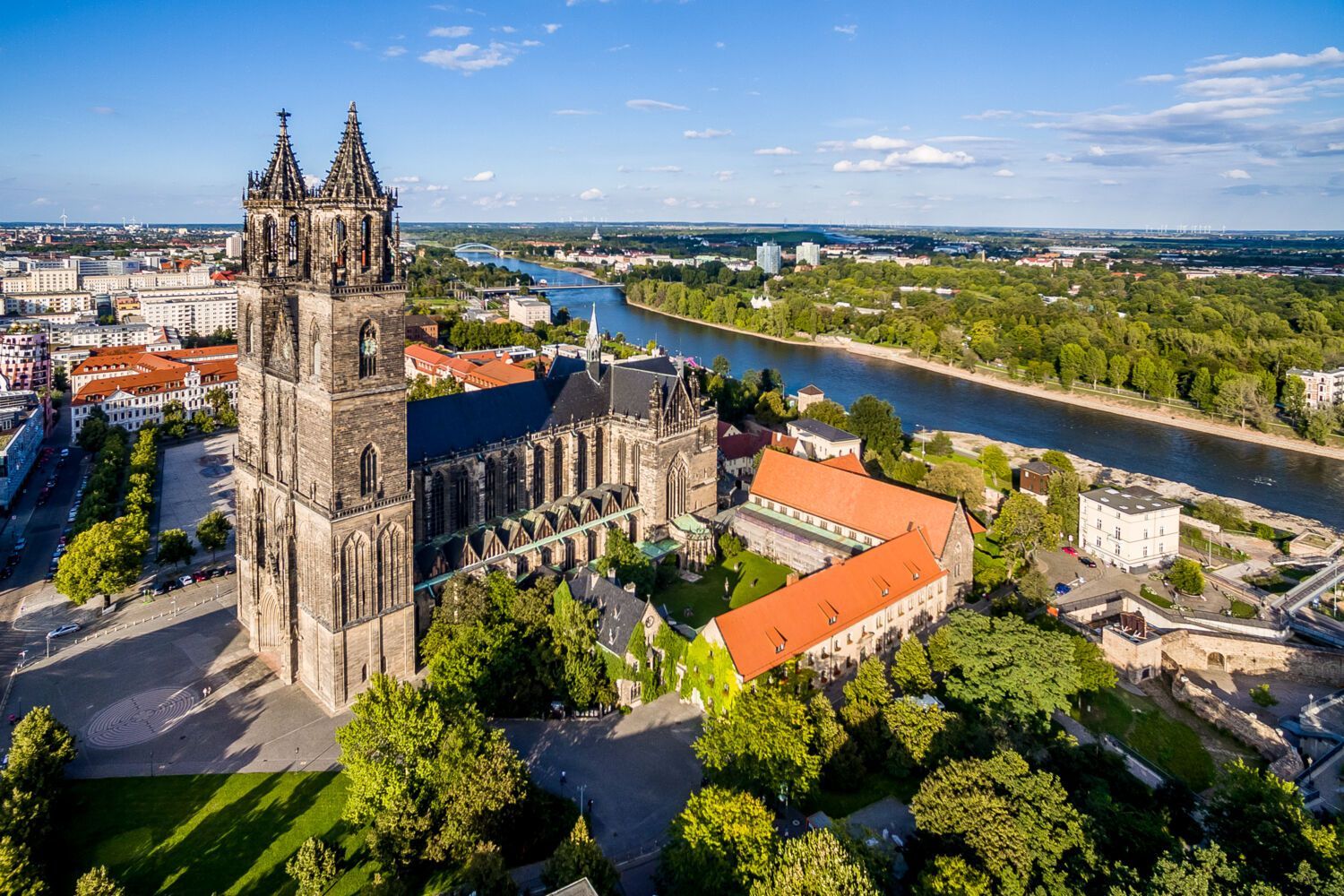
Magdeburg, located in Germany , has a lot to offer. Here's a blog-style list of some favorite things to do in Magdeburg: 1. Visit Magdeburg Cathedral (Dom) : Start your journey with this impressive Gothic cathedral. Climb to the top for a panoramic view of the city. 2. Elbauenpark: Explore this beautiful park with a large playground, a cable car, and a butterfly house. Perfect for a family day out. 3. Kloster Unser Lieben Frauen: This former monastery now houses an art museum and a charming courtyard. A great spot for art enthusiasts. 4. Magdeburg Water Bridge: Marvel at this engineering feat – a water bridge that connects two canals. It's a unique sight to see. 5. Citadel Park: Enjoy a leisurely stroll in this serene park and discover its historic citadel. Ideal for a relaxing afternoon. 6. Herrenkrug Park: Another lovely park with a zoo, golf course, and a spa. Great for nature lovers and those seeking relaxation. 7. Green Citadel of Magdeburg: Designed by architect Friedensreich Hundertwasser, this colorful building is a unique architectural gem. Don't forget to snap some photos. 8. Visit Local Breweries: Magdeburg has a rich brewing tradition. Sample some local beers and enjoy traditional German cuisine in one of the city's breweries or beer gardens. 9. Café Culture: Magdeburg boasts a vibrant café culture. Spend a lazy afternoon sipping coffee and people-watching at one of the cozy cafes in the city center. 10. Shopping at Hundertwasserhaus: Find unique souvenirs and handmade crafts at the shops within the Green Citadel. 11. Magdeburger Zoo: If you're traveling with kids, a trip to the zoo can be a fun and educational experience. 12. Bike Along the Elbe River: Rent a bike and explore the scenic Elbe River promenade, which offers picturesque views and a pleasant ride. 13. Nightlife in Hasselbachplatz: Discover the city's nightlife by heading to Hasselbachplatz, where you'll find bars, clubs, and restaurants for an entertaining evening. Remember to check local events and festivals happening during your visit, as they can add extra charm to your stay in Magdeburg . Enjoy your time exploring this historic and vibrant city!
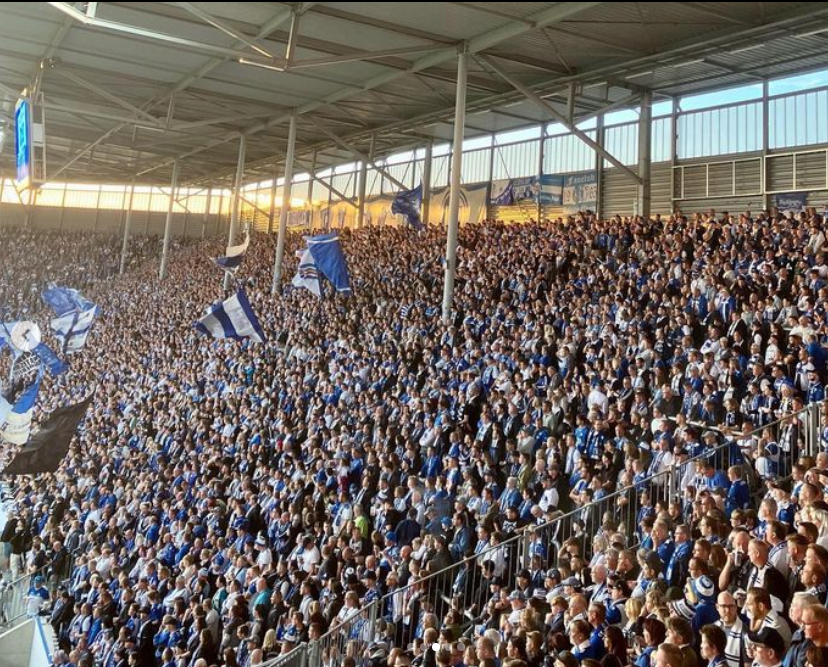
Introduction: Are you looking for a thrilling and unforgettable weekend getaway? Look no further! In this blog post, we'll take you on a journey that combines the comfort and luxury of a great hotel stay with the excitement of attending a live football match. Whether you're a die-hard football fan or just looking for a fantastic way to spend a weekend, this combination promises an experience you won't soon forget. Part 1: Choosing the Right Hotel Before you embark on your football adventure, it's crucial to pick the perfect hotel for your stay. Here are some factors to consider: Location: Opt for a hotel that's conveniently located near the football stadium. This will save you time and make it easier to access the match and other local attractions. Amenities: Look for hotels that offer the amenities you desire, whether it's a spa, fitness center, or a beautiful pool area. A comfortable stay is essential to recharge before and after the game. Dining Options: Check if the hotel has on-site restaurants or room service. Enjoying a delicious meal without leaving your hotel can be a welcome convenience. Transportation: If you're not driving to the match, consider the hotel's proximity to public transportation options or whether they offer shuttle services to the stadium. Part 2: The Football Match Experience Attending a live football match is an electrifying experience that can be the highlight of your trip. Here's what you can expect: Pre-game Excitement: Arrive at the stadium early to soak in the atmosphere. Tailgating, chatting with fellow fans, and exploring the stadium can be a great way to build anticipation. Spectacular Atmosphere: Once inside, you'll be surrounded by passionate fans, the smell of stadium food, and the roar of the crowd. Be prepared for an unforgettable atmosphere. Supporting Your Team: Whether you're cheering for the home team or your favorite club, don't hold back! Sing the chants, wave your team's flag, and enjoy the camaraderie with fellow supporters. The Game Itself: The thrill of the game, the precision of the players, and the suspense of every goal attempt are what make football matches so captivating. Post-game Celebrations (or Commiserations): After the final whistle, you can celebrate a victory or commiserate a loss with fans at nearby sports bars or enjoy a leisurely stroll back to your hotel to reflect on the match. Part 3: Relaxing at the Hotel After an exhilarating football match, return to your chosen hotel to unwind: Rest and Recuperation: A comfortable bed and a relaxing bath or shower will help you recharge your energy. Dining Options: If you didn't dine at the stadium, explore the hotel's dining options or order room service for a convenient and delicious meal. Spa and Wellness: Some hotels offer spa services. A massage or a dip in the pool can be the perfect way to relax after an action-packed day. Conclusion: Combining a hotel stay with a football match is a recipe for an unforgettable weekend getaway. It allows you to immerse yourself in the excitement of the game while enjoying the comforts and luxury of a great hotel. So, whether you're planning a solo adventure, a romantic escape, or a fun-filled trip with friends, consider this winning combination for your next weekend getaway!

"Embracing Tranquility: The Importance of Hotel Relaxation in Nature and by the Lake" In our fast-paced world, finding moments of tranquility and relaxation has become a precious commodity. Fortunately, there's a unique haven where you can escape the hustle and bustle – hotels nestled in the heart of nature, by serene lakeshores. These tranquil getaways offer more than just a place to stay; they provide an immersive experience that rejuvenates the mind, body, and soul. ## The Allure of Nature Nature has a remarkable ability to soothe the soul. Hotels located amidst lush greenery or beside pristine lakes offer guests a chance to reconnect with the natural world. The peaceful rustling of leaves, the gentle lapping of water against the shore, and the harmonious chorus of birds create a serene symphony that drowns out the noise of urban life. ## Stress Relief The hustle of daily life can take a toll on our mental and physical well-being. Hotel relaxation in a natural setting provides an ideal environment to destress. Guests can engage in activities like hiking, kayaking, or simply lounging by the lake, helping them unwind and forget about their worries. ## Mindful Moments Hotels in nature often encourage mindfulness. Picture yourself sipping a cup of herbal tea on a lakeside terrace, practicing yoga to the backdrop of a sunrise, or meditating by the water's edge. These activities promote mental clarity and allow you to fully immerse yourself in the present moment. ## Connection with Loved Ones Escaping to a natural and lakeside hotel is also an opportunity to strengthen bonds with loved ones. Whether it's a romantic getaway or a family vacation, the tranquil surroundings provide a serene backdrop for quality time together. ## Health Benefits Studies have shown that spending time in nature can lower stress levels, improve mood, and boost overall well-being. By choosing a hotel nestled in nature, you're not only treating yourself to relaxation but also investing in your long-term health. ## Aesthetic Pleasures Beyond the mental and physical benefits, these hotels often boast breathtaking views, picturesque landscapes, and thoughtfully designed architecture that seamlessly blends with the natural surroundings. The sheer beauty of such places is a feast for the eyes. ## Conclusion In a world filled with constant demands and distractions, the importance of hotel relaxation in a natural and lakeside setting cannot be overstated. It offers an escape from the daily grind, a chance to reconnect with nature, and an opportunity to rejuvenate your mind, body, and soul. So, the next time you seek a peaceful retreat, consider booking a stay at one of these idyllic sanctuaries – where relaxation takes on a whole new meaning.
